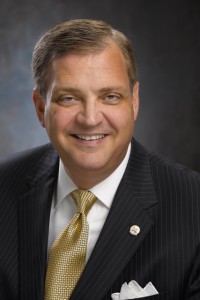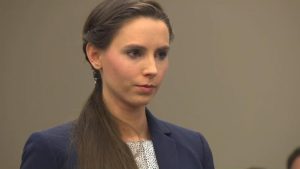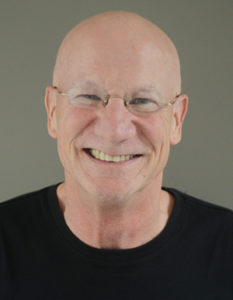An evangelical church-planting network accused of covering up decades of sexual abuse has turned down calls for an independent third-party investigation, citing reasons including autonomy of the local church.
“Like many denominations, our churches are independently constituted,” leaders of Sovereign Grace Churches said in a nearly 2,300-word statement calling such a review “both inappropriate and impractical.”
 The April 12 statement said the 75-church group formerly known as Sovereign Grace Ministries “has no more authority to order a denomination-wide investigation of all of its churches than, e.g., the Southern Baptist Convention does.”
The April 12 statement said the 75-church group formerly known as Sovereign Grace Ministries “has no more authority to order a denomination-wide investigation of all of its churches than, e.g., the Southern Baptist Convention does.”
The SBC – with 15 million members and more than 47,000 churches the nation’s second-largest faith group behind Roman Catholics – is currently conducting an internal review of its own policies for handling reports of sexual abuse by clergy and ministry volunteers.
A decade ago Southern Baptist leaders rejected calls to create a database of admitted, convicted or credibly accused abusers, citing belief “that the local church in New Testament times was autonomous, and thus our local churches are autonomous.”
In light of recent newspaper articles reporting widespread abuse in SBC churches over the last two decades, however, current SBC president J.D. Greear suggested in February the idea of a database might be back on the table, saying that Southern Baptists need to “repent of appealing to autonomy as a cover-up for lack of accountability.”
Among those calling for an independent probe of Sovereign Grace Churches is Albert Mohler, president of Southern Baptist Theological Seminary in Louisville, Kentucky. In February Mohler released a statement apologizing for his past support of C.J. Mahaney, the founder of Sovereign Grace Churches who long worked with Mohler and Southern Baptist pastor Mark Dever to host a biennial preaching conference called Together for the Gospel.

Albert Mohler
“I should have been very clear about insisting on an independent, credible, third-party investigation right from the time these allegations arose,” Mohler said Feb. 15. “I should have said nothing until I had heard from the survivors who were making those allegations. I should have sought advice and counsel of agencies and authorities and experts who were even then on the front lines of dealing with these kinds of allegations.”
Sovereign Grace Churches grew out of the charismatic movement in the 1970s and in the 1990s embraced the growing New Calvinism popular in evangelical groups including parts of the Southern Baptist Convention.
In 2012 Mahaney and Sovereign Grace Churches relocated from Maryland to Kentucky, in part to strengthen ties with Southern Seminary. Mahaney started a new Sovereign Grace church in Louisville. which later affiliated also with the Southern Baptist Convention.
In 2011 nearly a dozen families who had been members of Mahaney’s Maryland congregation and another Sovereign Grace church in Virginia filed a lawsuit claiming that Mahaney and other Sovereign Grace leaders conspired to conceal decades of sexual and physical abuse of children so elders could handle it internally as a matter of “church discipline” instead of turning it over to the police.
Each of the plaintiffs claimed the abuse happened in the 1980s and 1990s but they believed theirs was an isolated case until they shared their stories in 2011 on a blog called SGM Survivors. Their class-action lawsuit was dismissed without adjudication due to statute of limitations, but not before the story spread in media reports including a 2016 story in the Washingtonian magazine headlined “The Sex-Abuse Scandal That Devastated a Suburban Megachurch: Inside the rise and fall of Sovereign Grace Ministries.”

Rachael Denhollander
Rachael Denhollander — key witness in the July 2017 conviction of serial child molester Larry Nassar, former team doctor for both USA Gymnastics and Michigan State University — described Sovereign Grace Churches to Christianity Today in January 2018 as “one of the most well-documented cases of institutional cover-up I have ever seen.”
In their statement April 12, SGC’s leadership team said both churches named in the dismissed lawsuit are no longer part of the network.
“We are not saying that external investigations are never appropriate,” they said. “Rather, we do not think one is appropriate given the present circumstances, in which scandalous allegations have been made publicly against a limited number of parties, without providing credible evidence or based upon any substantive findings by criminal or civil authorities.”
“To demand an independent investigation of an entire denomination based upon unsubstantiated allegations — especially against only two churches, neither of which is any longer a part of the denomination — is unwarranted and unjust,” the statement said.
Denhollander, whose husband is pursuing a Ph.D. at Southern Seminary, said April 16 on Facebook that the explanations Sovereign Grace Churches gave for not pursuing an independent review “simply are not valid objections.”
“Every institution that desires to pursue truth and accountability must sift through these questions, and numerous Christian experts are available to help properly exegete Biblical standards of justice and accountability,” she said. “An independent review by a qualified firm requires higher, not lower, standards than the less-defined and basic standards set out in Scripture.”

C.J. Mahaney
In his February report to the SBC Executive Committee, President Greear, pastor of The Summit Church in Durham, North Carolina, listed Mahaney’s Sovereign Grace Church of Louisville as one of 10 congregations named in recent reporting by the Houston Chronicle and San Antonio Express-News that should be investigated for “indifference to the crime of sexual abuse.”
Staff of Sovereign Grace Church of Louisville responded March 19 that “nothing could be further from the truth.”
“Within Sovereign Grace Churches, we are not aware of a single pastor guilty of — much less charged with or convicted of — sexual abuse or conspiring to cover up abuse,” leaders said in a pastors’ blog. “By God’s grace this has been true for the 35+ year history of this group of churches. We have repeatedly and publicly denied — in the strongest possible terms — the false accusations that have been leveled against SGC and CJ Mahaney.”
Previous stories:
Al Mohler says he was wrong about C.J. Mahaney
#AlMohlerToo: Did a Southern Baptist power broker just get woke?
SBC leaders stand by accused colleague
SBC president calls for investigation of churches accused of harboring sexual predators
Witness in Larry Nassar case calls out evangelicals for ‘double standard’ in sexual abuse
